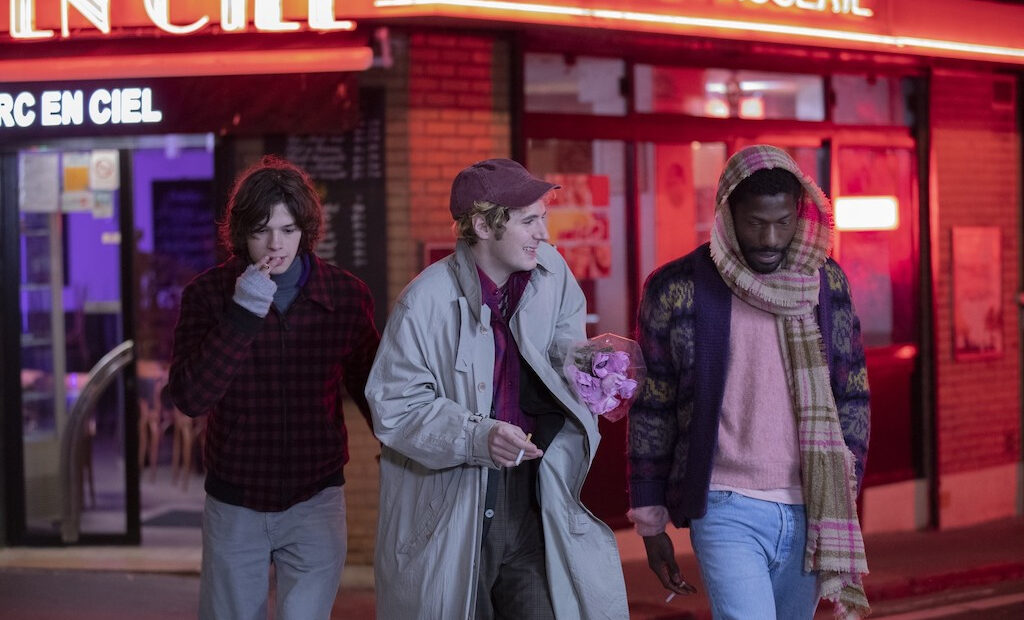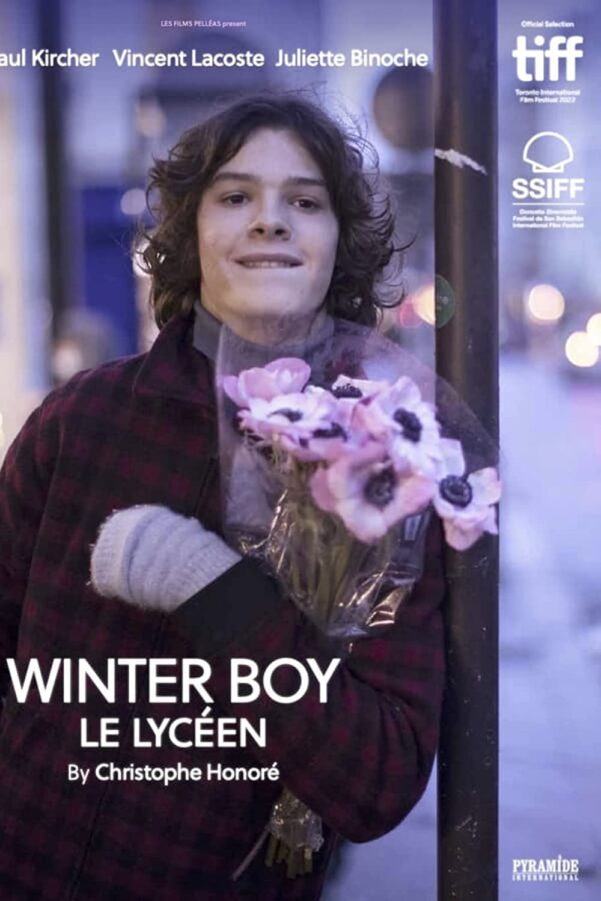Winter Boy (Le Lycéen)

Christophe Honoré’s Winter Boy (translated from its French title, Le Lycéen) sees the French auteur distance himself from the self-serving exclusivity of 2021’s Guermantes, bringing to the screen a highly personal yet generously outward-facing meditation on loss and sexuality.
The eponymous “winter boy”, Lucas (Paul Kircher), is an emotionally ungenerous 17-year-old on the verge on manhood, who, during the first moments of his framing narration (in which he meditates on his life thus far against the backdrop of an existentially pointed black void), describes his life as a “wild animal which he cannot approach”. Cracks in his existence, including detached sexual desire (he is keen to remind his boarding school boyfriend that their relationship is nothing more than carnal) and a fractious relationship with his older brother, Quentin (Vincent Lacoste), are widened in the wake of the sudden death of his father (Honoré).
A circumstantially unfortunate family reunion teeters on the precipice of collapse as politics briefly enter the fray, while Lucas’s resentment of his brother’s artistic drive and immersion in Paris spills over into a physical tussle. From the authenticity of the relationship between the two and the rawness of Kircher and Lacoste’s respective performances, one gets the impression that this is not the first time they have fallen out. It is certainly not the last. In a moment of subsequent tranquility, Quentin invites Lucas to stay with him in Paris (though he categorically warns him that he will have very little time for hospitality). There, Lucas begins a bohemian journey of metropolitan self-discovery – but his behaviour quickly becomes self-destructive, as casual sexual encounters with men grow more troubling, dark and dangerous, in tandem with his state of mind.
But while Winter Boy takes the ostensible form of a melodramatic coming-of-age piece anchored by a terrific debut performance from Kircher – one that illuminates the boyish narcissism and vulnerability of his character – its beating heart is that of a family drama, dissecting the process of grief that unfolds after unexpected tragedy. It revisits preoccupations that Honoré explored in 2006’s Dans Paris in the cantankerous central sibling relationship and the ebb and flow of dysfunction and despair in the family unit. The filmmaker exhibits a lightness of touch in Winter Boy that reflects the unruly ways in which grief boils to the surface by the heat of a song, a comment, a look, or a truck hurtling by.
Juliette Bincoche takes a relative backseat as Lucas and Quentin’s forlorn, yet headstrong mother, Isabelle, but her power as a performer remains undeniable as she realises a character stricken with sorrow but not identified by it.
The “winter boy” kicks out at the world as he cannot process his pain – or, perhaps more accurately, he doesn’t want to, preferring to leave more devastation in his wake instead. But Winter Boy is far from a nihilistic film. It is one of hope, and about the possibility of overcoming and turning one’s head towards the good. By the time the credits roll, Lucas has far from found the light, but the wheels have at least been set in motion.
Matthew McMillan
Winter Boy (Le Lycéen) does not have a UK release date yet.
Read more reviews and interviews from our London Film Festival 2022 coverage here.
For further information about the festival visit the official BFI website here.
Watch a clip from Winter Boy (Le Lycéen) here:
























Facebook
Twitter
Instagram
YouTube
RSS